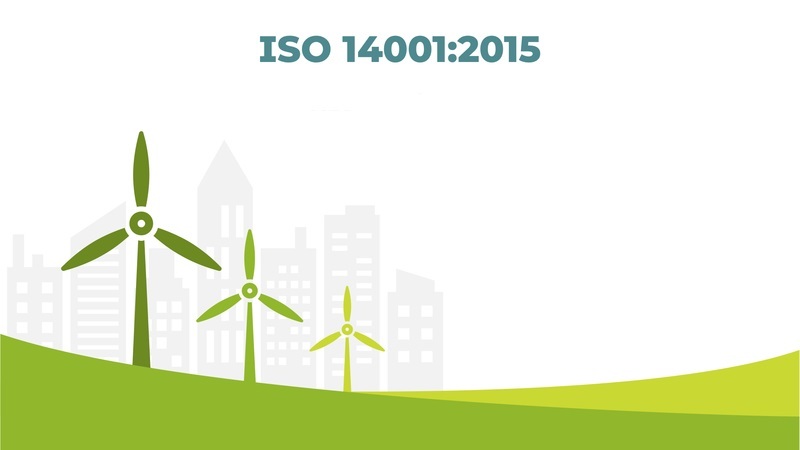ISO 14001:2015

Environmental Management Systems
Introduction to ISO 14001: 2015
ISO 14001 is an internationally recognized standard that defines the requirements of an environmental management system. It helps organizations improve their environmental performance by using resources more efficiently and reducing waste, while gaining competitive advantage and stakeholder confidence.

What is an Environmental Management System?
The environmental management system helps organizations identify, manage, monitor and control their environmental issues in a holistic and comprehensive way.
ISO 14001 can be easily integrated with other ISO management systems, such as ISO 9001 for quality management and ISO 45001 for occupational health and safety, as they all have the same structure.
ISO 14001 is suitable for organizations of all types and sizes, whether private, not-for-profit or public. ISO 14001 requires the organization to address all environmental issues related to its activities, such as air pollution, water and sewer problems, waste management, soil pollution, adaptation to climate change and resource use.
Like all standards for an ISO management system, ISO 14001 includes the need to continually improve the organization's system and approach to environmental protection. The standard was revised in 2015 with key improvements, focusing on environmental management within the organization's strategic planning processes, greater input from management, and stronger commitment to proactive initiatives that enhance environmental performance.
What benefits will it bring to my business or organization?
There are many reasons why an organization needs to take a strategic approach to improve its environmental performance. By implementing ISO 14001 you will:
• Demonstrate compliance with current and future legal and regulatory requirements
• Increase leadership commitment and employee engagement
• Improve company reputation and stakeholder trust through strategic communication
• Achieve strategic business goals by incorporating environmental concerns into business management
• Provide competitive and financial advantage through improved efficiency and reduced costs
• Promote better environmental performance for suppliers by integrating them into the organization's business systems
Why was 14001 revised?
All ISO standards are reviewed on a regular basis to ensure they remain relevant to the market. ISO 14001: 2015 will respond to the latest trends, including the increasing recognition by companies of the need to take into account both external and internal elements that affect the environment such as climate change and the context in which operate. The changes also ensure that the standard is compatible with other standards for management systems.
What are the more important improvements?
ISO 14001: 2015 requires:
• Make environmental management visible and visible in the strategic direction of the organization
• Greater management involvement
• Implement proactive initiatives to protect the environment from disability, such as sustainable use of resources and reduction of climate change
• Life cycle focus to ensure that environmental aspects are considered from start to finish
• Adding a stakeholder-focused communication strategy
It also allows for easier integration into other management systems thanks to the same structure, terms and definitions.
Where to start?
Call us!
We are consultants with over 15 years of experience in the implementation, auditing and certification of Management Systems. Together with you we will create the most suitable plan that suits your needs so that you can get the certificate as smoothly and optimally as possible!
If you would like to receive a consultation offer, please click

